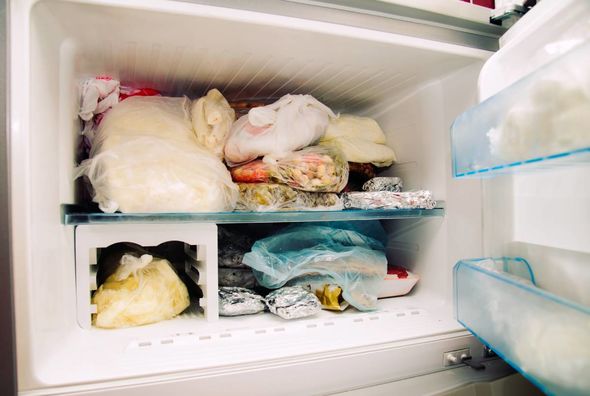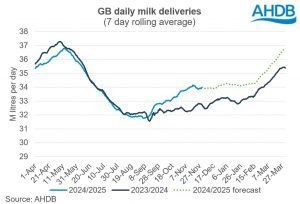
Can you freeze milk? Can you freeze cheese?
There are a number of food items that can be frozen for later use.
Freezing doesn’t necessarily kill nutrients and is a useful way to store food without having to use chemical preservatives.
Speaking on the Today show in Australia, Dr Joanna McMillan said: “Freezing is a really amazing way of preserving our food because you don’t have to use chemical preservatives.
“It’s actually one of the oldest means of preserving foods. I think we under-utilise the freezer in today’s age where we think everything that’s fresh is better for us and it’s actually not the truth.”
As well as the likes of leftovers, bread, nuts, butter, flour, eggs and pasta, you can freeze milk.
Frozen milk should be thawed before it is used and should be shaken before being poured it to ensure all the solids and liquids have been fully mixed.
Milk will also expand when it’s frozen, so it shouldn’t be put in a tight container.
If you’re afraid of running out of milk for your tea or coffee, you can freeze some of using an ice cube tray and use the portions for your hot drink.
Alyssa Pike is a registered dietitian and manager of nutrition communications at the International Food Information Council.
She recommends long-life or plant-based milk because they don’t necessarily need to be frozen because of their shelf life.
This makes them a great option for those who don’t want to or can’t make a trip to the shops.
Cheese can be frozen either in a block or grated.
If opting for the latter option, it can be stored in a zip-lock bag and used as of when it’s required.
All types of cheese from the softer mozzarella to the harder parmesan can be frozen.
However, precaution should be taken with cottage cheese as that can react badly in freezing temperatures.
Nutritionist Jackie Newgent, authour of The Clean & Simple Diabetes Cookbook, says yoghurt and some dairy products can experience problematic texture changes in the freezer.
But dairy products like cheese and yoghurt are another story.
She said: “Due to texture changes when you freeze yoghurt or cheese, I only recommend freezing yogurt if you plan to use it in a recipe, like for a smoothie.
“And I only recommend freezing shredded cheese that you plan to use in cooking, such as packaged shredded mozzarella.
“Hard cheese, like Parmesan, can keep in the refrigerator for weeks.”

























